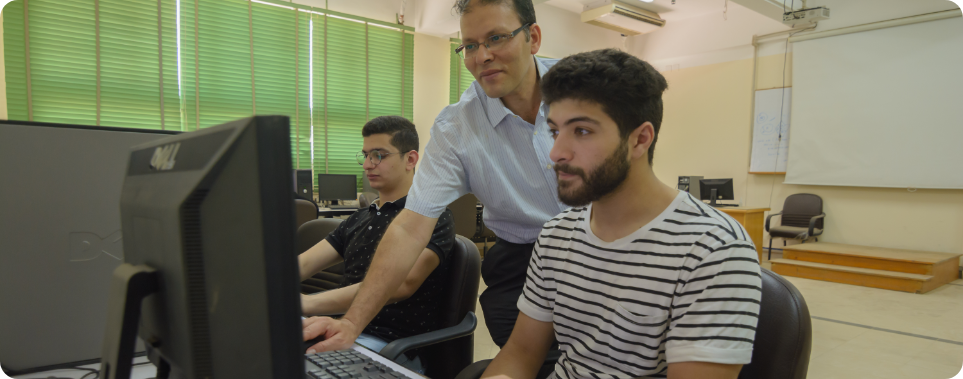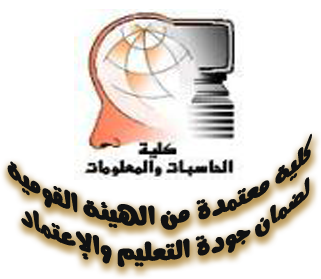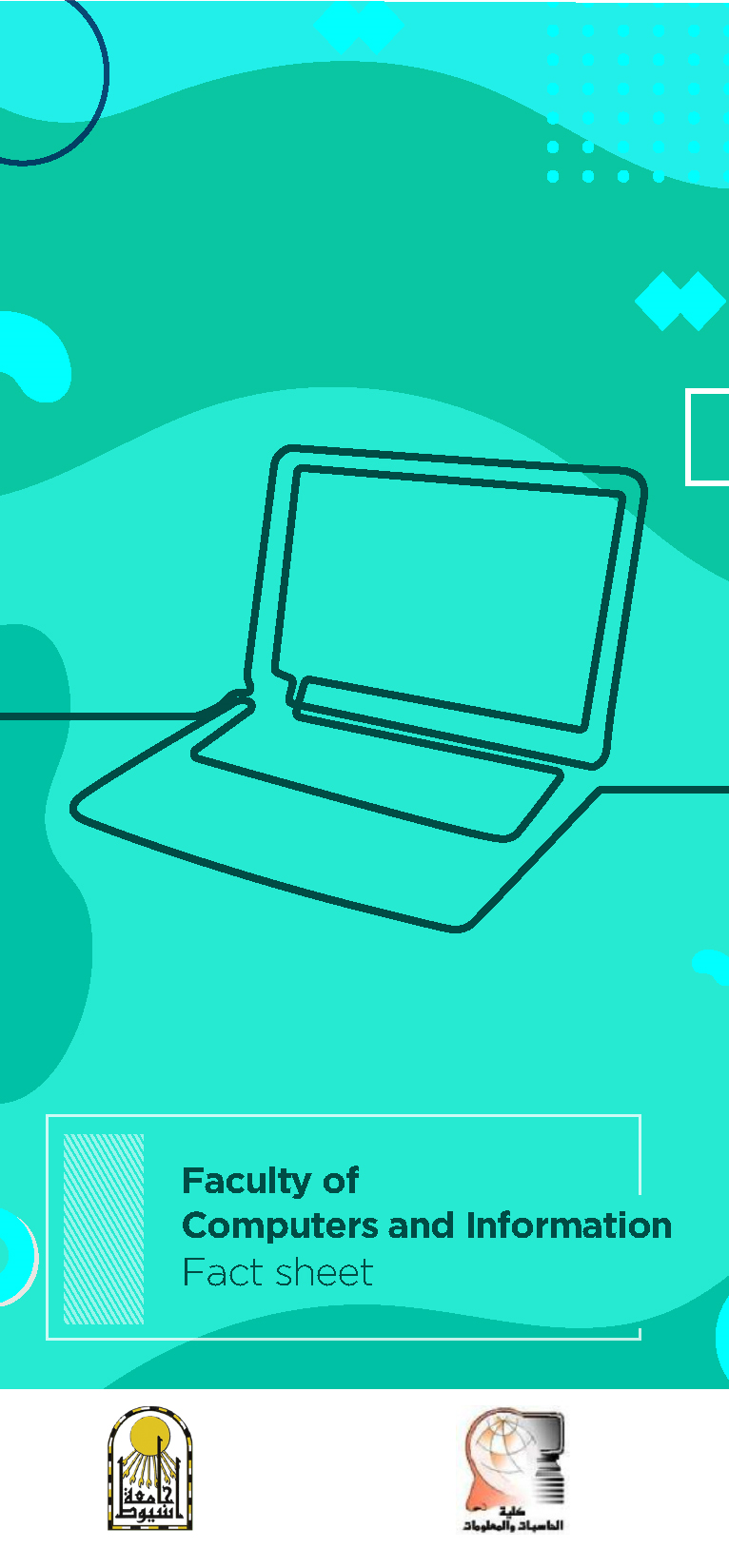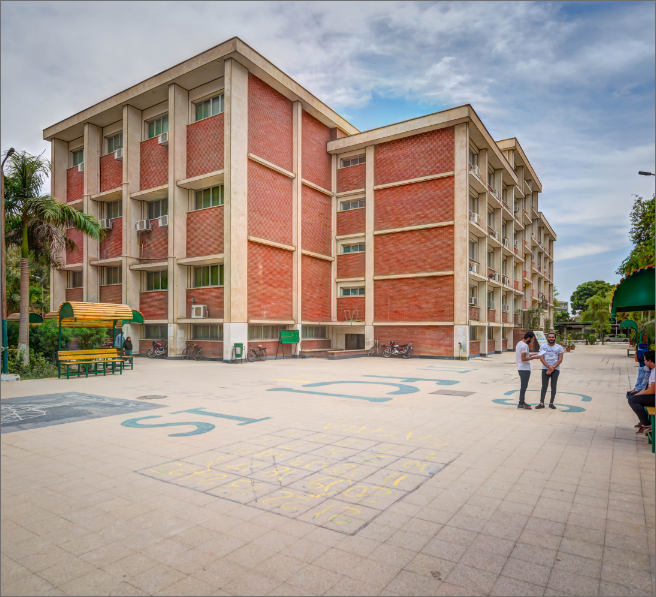
Welcome to Faculty of Computers and Information
Welcome to the Faculty of Computers and Information where science and engineering converge.
Faculty Vision
The Faculty of Computers and Information aspires to be a leading research educational institution in the field of computerization and community development and to exceed the global quality standards.
Faculty Mission
The mission of the Faculty of Computers and information at Assiut University is to serve the students as well as the community through the provision of distinctive education and innovative research in the fields of computer science, information systems and technology, and multimedia. This faculty develops the students’ personalities to make them able to build a knowledge-based economy and to create an innovative, competitive, and self-learning work environment. Computers and Information graduates are able to compete locally, regionally, and internationally in the labor market and to interact creatively with society and entrepreneurs.
Growth and Expansion
At first, the faculty of Computers and information was occupying a part of the building of the Faculty of Science, then in 2006 it moved to the current location in the new headquarter.
This faculty started with 143 Students in 2001/2002 until it reached 1206 students in 2017/2018. Moreover, the number of the faculty staff members was 4 and reached 15 staff members in 2016. The faculty of computers and Information will always keep on growing to provide its students and staff with knowledge and technology.
The number of faculty members at the college has developed since its inception, as it began with four faculty members and reached 15 members, 12 of whom are working in 2017, and this number is expected to double by 2022, in addition to 30 faculty members from other university colleges according to the unified departments system applied at the university.
About the college and its goals
- The study in the college depends on the credit hour system, and the credit hour is a unit of study for determining the weight of the course, and a lecture is one hour long, and either two, three or four hours are exercises or practical exercises.
- Obtaining a bachelor’s degree in any of the disciplines requires that the student successfully pass 144 credit hours over at least eight semesters, divided into four academic levels. In the event that the student chooses a minor specialization in addition to the main specialization, he must successfully pass 15 additional credit hours from the requirements of the minor.
- The student must specify the major as well as the minor specialization if he / she desires, after successfully passing a total of 72 credit hours, and this may not be changed without the approval of the College Board.
- The college follows the credit hour system, which is based on the fact that the basic unit is the course and not the academic year, and the evaluation system is based on grading in each course with the points system
Objectives:
- A distinguished graduate capable of creativity and innovation.
- Raising the research efficiency of the college and developing postgraduate studies.
- An effective administrative apparatus.
- Consolidating values and ethics.
- Promoting excellence and strategic steps to link the college to society and the labor market.
- Accreditation of the college.
The College aims to achieve the following objectives:
A distinguished graduate capable of creativity and innovation:
- Developing curricula periodically to ensure keeping pace with the latest technological developments.
- Introducing new specializations that meet the needs of the evolving labor market, such as artificial intelligence, the Internet of Things, and cybersecurity.
- Enhancing the focus on practical skills by increasing the number of practice hours and practical training.
- Providing distance learning programs to provide broader educational opportunities for students.
- Encouraging students to participate in scientific competitions and events.
- Establishing a center for creativity and innovation to support students in their creative projects.
Raising the research efficiency of the college and developing postgraduate studies:
- Increasing support for scientific research by providing more funding and research grants.
- Encouraging cooperation between researchers within the college and with regional and international universities and research institutions.
- Providing opportunities for students to study at prestigious international universities.
The college's interaction with society and the environment and linking the labor market:
- Providing advisory services to the community in the field of computers and information.
- Organizing training programs for the community in the field of computers and information.
- Participating in solving environmental problems using computer technologies.
- Spreading awareness of the importance of preserving the environment among students and the community.
- Establishing an advisory board for the college consisting of representatives from the private sector and civil society to help develop the college's plans and programs.
An effective administrative apparatus:
- Developing a comprehensive strategic plan for the college that includes clear and measurable goals.
- Developing the college's organizational structure to ensure efficient performance.
- Training members of the administrative apparatus on modern management skills.
- Using information and communication technologies to improve the efficiency of administrative work.
- Evaluating the performance of the administrative apparatus periodically and making the necessary adjustments.
Establishing values and ethics:
- Encouraging innovation and entrepreneurship
- Commitment to ethical and professional standards
- Encouraging continuous learning
- Ensuring academic quality
College accreditation:
- Encouraging innovation and entrepreneurship.
- Commitment to ethical and professional standards.
- Encouraging continuous learning.
- Ensuring academic quality.
Dean of the College
Prof. Dr. Taiseer Hassan Abdel-Hamid Sulaiman




